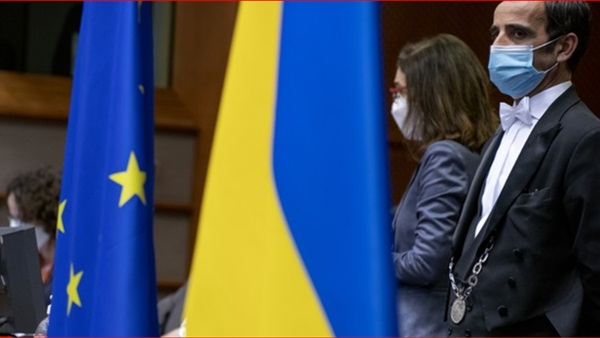Double Standards in International Response to Israeli Aggression in Gaza and the Ukrainian Crisis

The ongoing Israeli aggression against the Palestinian
people in the Gaza Strip has once again highlighted the issue of double
standards in the international community's response to conflicts. This report
aims to analyze and shed light on the inconsistent approach taken by Western
countries, which claims to champion human rights, international law, and the
defense of sovereign nations while endorsing a blatant double standard when it
comes to Israel.
Double Standards and Western Response
The Western response to the conflict in Gaza starkly
contradicts its clear stance in the Ukrainian crisis. Western nations swiftly
condemned Russia for alleged aggression against a sovereign state, accusing it
of occupying and targeting civilian infrastructure, including hospitals,
schools, and energy facilities. Harsh sanctions were imposed on Moscow, citing
war crimes, no matter how heinous.
A clear illustration of this double standard was seen in
the statements made by Ursula von der Leyen, President of the European
Commission, at the beginning of the Russo-Ukrainian war. She visited Kyiv and
accused Moscow of killing children, destroying schools and hospitals, and
damaging infrastructure. She called on the world to confront what she labeled
Russian brutality. Yet, she simultaneously expressed unwavering support for
Israel, stating, "We support Israel unconditionally for its
self-defense," effectively endorsing the killing of Palestinian civilians
since 1948.
Historical Context of Biased Support for Israel
Western societies have consistently found numerous
justifications for supporting Israel, allowing its expansion and settlement
building while today granting it the right to "self-defense." A joint
statement issued by the United States, Canada, France, Britain, and Italy days
ago criticized the Palestinian people and called for the immediate release of
all hostages held by Hamas to prevent the conflict from escalating. This
statement discreetly ignored the Israeli occupation's compliance with
international humanitarian law and the protection of civilians.
Additionally, Antony Blinken, the US Secretary of State,
demonstrated his unequivocal bias towards Israel by expressing solidarity with
Israel even before assuming office as the foreign minister of the world's most
powerful nation. Washington has also endorsed alleged narratives of child
casualties, placing it in the same moral realm as Israel regarding its
violations against Palestinians in the besieged Gaza Strip.
International Humanitarian Law and Israel's Violations
Dr. Nabil Ahmed Helmi, former Dean of the Faculty of Law
and professor of international law, emphasizes that Israel's aggression against
Gaza contradicts international law in general and international humanitarian
law in particular. International humanitarian law comprises legal rules applied
during armed conflicts.
He argues that since Israel occupies Palestinian
territories, the Palestinian people have the legitimate right to defend
themselves and their lands. International humanitarian law was established in
1949 after the Second World War, addressing the numerous problems and
violations occurring during non-peaceful conflicts. The Geneva Conventions of
1949 deal with maritime, land, prisoner of war, and armed conflict situations
or the protection of civilians under occupation.
Helmi stresses that Israel has no right to violate
international law by not safeguarding civilians and infringing upon their
rights, as Gaza and Palestine as a whole are under occupation. Any deviation
from these principles is a breach of international law.





